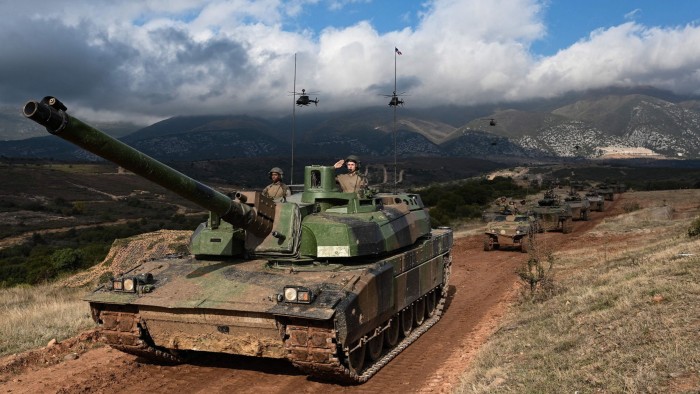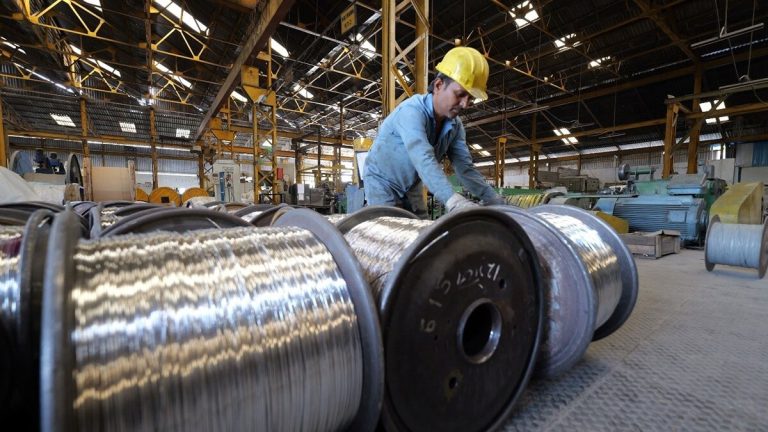Unlock the Editor’s Digest for free
Roula Khalaf, Editor of the FT, selects her favourite stories in this weekly newsletter.
Brussels has proposed buying arms collectively on behalf of EU member states, in what would be a major shift in response to President Donald Trump’s disruption of US foreign policy.
In a draft paper on defence seen by the Financial Times and due to be published next week, the European Commission said that “collaborative procurement” was the “most cost-effective route to build European defence” after a slump in spending following the cold war.
It added that, if requested by EU governments, the commission itself could “act as a central purchasing body [for weapons] on their behalf”. Member states would still decide which arms to purchase and in what quantities.
Brussels faces the daunting task of swiftly re-arming Europe while boosting the continent’s defence industry for a new era in which it can no longer rely on US support.
Trump has spooked EU capitals by threatening to halt US security protection for European Nato members, temporarily suspending military aid to Ukraine and rekindling ties with Russia.
Defence spending currently falls under the remit of EU governments, meaning that member states have typically favoured their own national manufacturers.
As a result, the European defence market is fragmented, with multiple competing products and relatively high prices. The US, by contrast, has a far smaller number of producers and products.
The commission suggested giving preference to European defence products in public procurement and, if no suitable products were found, consider purchasing from “like-minded third-country companies, demanding full control”.
During the Covid-19 pandemic, the commission stepped in to purchase vaccines collectively on behalf of EU member states to bring down prices and ensure supply amid fierce global competition.
“The commission is drawing heavily from its vaccine playbook,” said Mujtaba Rahman, Europe director at political risk analysis firm Eurasia Group.
“This will be huge if it lands,” he added.
Some member states have privately pushed for Brussels to apply the same principle to defence, calling for “collective” security investments in areas such as common air and missile defence and a reinforced eastern border.
The draft white paper, which could change before it is officially published ahead of an EU summit on March 20, also contains more details on financing options unveiled by commission president Ursula von der Leyen last week.
Those include €150bn in loans to capitals and a relaxing of EU deficit rules for defence spending.
The document seen by the FT does not contain a proposal for new collective debt by EU member states for defence, an idea pushed by many capitals but opposed by Germany and the Netherlands.







